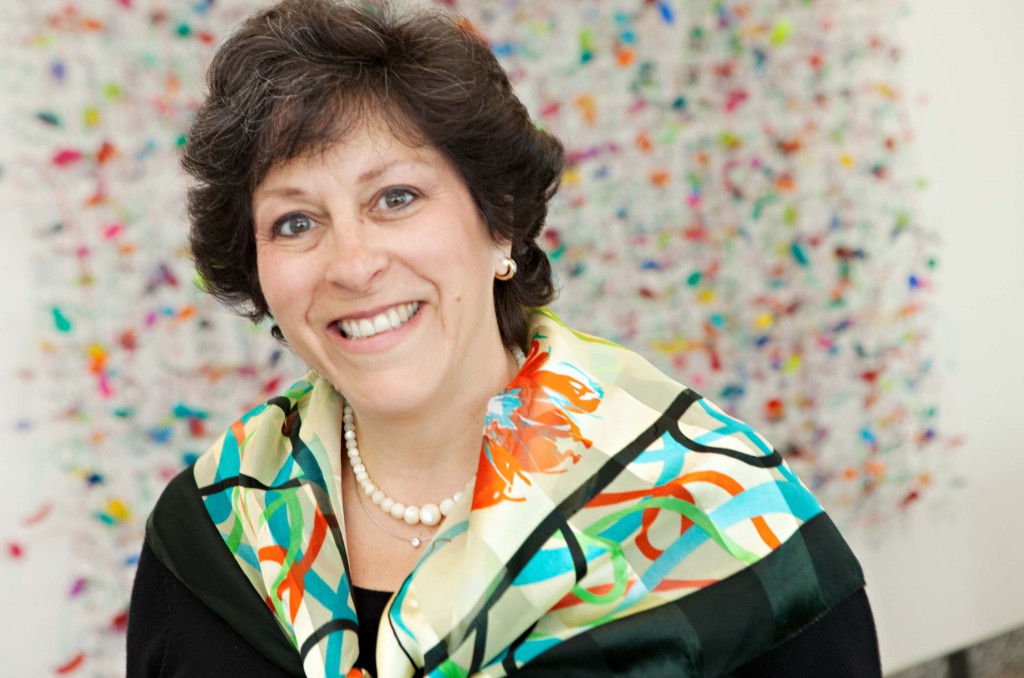The Place and Power of Food
Joyspotting
Op-Ed by Dean Magda Peck
I may be a public health school dean, but I was a foodie first. Raised in my mother’s adventurous kitchen, and endowed with my father’s enormous sense of smell, I delight in food stories and tastes. On an odd family outing through Guatemala City, my father stopped the Jeep in the middle of a quiet residential area and cried, Schnecken! He abandoned the car and sniffed deeply with his outsized proboscis, walking up and down the street until he found the source. An elderly Nicaragua earthquake survivor was in his garage, selling the piping hot sweet rolls of my father’s youth, laden with butter, nuts, and cinnamon. A feisty exchange in Yiddish turned into cups of coffee and kitchen table conversation; we ended up spending the night in the posada next door. One memorable culinary season in the Sixties, our dinner table featured Quiche Lorraine every night until my mother got it not just like Julia’s, but just right for her. While my school-age peers mastered burgers and fries, I learned to rescue the heart of an artichoke at an early age and knew how to unlock the secret key on the bottom of a steaming hot, peppery hard shell crab.
As a newbie to Milwaukee two plus years ago, I figured a deliberate and delicious way to explore my new town was through its food. Some of the best folks who could teach me this town were its growers, vendors, purveyors, and chefs. Each place and product was a story to discover: juicy sweet peaches and Larry’s great honey at Walnut Way; nurturing chocolate lip balm and peppermint tea out of Alice’s Garden; heart-healthy Fusion Spices curry and veggie sauté cooked up with a story of personal resurrection at Fondy Market; and of course, Martha’s Pimento Cheese. Families crowded the aisles at El Rey, amidst hanging piñatas, fresh tamales, and tacos al carbon. Over fresh chilaquiles at the United Community Centers El Sol Café, I heard how to sustain a vibrant Latino community across miles and generations. Tangy cabbage soup at Benji’s (with sour salt—just like my Gram’s!) and tasting Jake’s corned beef opened windows into an enduring Jewish community and helped me better understand the family origins of our new school of public health. Breakfast with my mom in The National’s tiny backyard, and watching Amilinda pop up there each Saturday night, affirm my belief in the purpose of place and power of food to transform lives and co-create communities.
Yet amidst an abundance of local assets, I also discovered a dark urban underbelly where hunger and obesity conspire to lessen learning and curtail lives. Alongside promising trends in healthier eating, community gardens and a growing local movement of farm-to-fork, Milwaukee’s persistent food “deserts” are lined with fast food and food pantry shelves are not always stocked. In Wisconsin, nearly 30% of adults are obese and African Americans adults in Wisconsin have the highest rates of obesity in the nation. Overall a third of our children and adolescents are overweight or obese; among children of color is can be more than half.
According to the Centers for Disease Control and Prevention (cdc.gov), the many causes of this epidemic among children are complex: limited access to healthy affordable foods, greater access to sugary drinks and high energydense foods, too much screen time and no safe places to play, lack of daily physical activity in all schools, increasing portion sizes, successful advertising of less healthy foods, and lack of breastfeeding support. It’s a combination of behavior, environment, culture, socioeconomic status, metabolism, and genes. The health consequences include increased risks of high blood pressure and stroke, diabetes and kidney disease, and cancer. For mothers and babies, obesity is linked with prematurity and birth defects. And epigenetic effects can linger from generation to generation.
In my Milwaukee outings, I have discovered oases of innovation in the hardest hit places that give me great hope. Along with Milwaukee’s restaurant renaissance, there is a parallel food justice movement dedicated to securing health and vitality for each and all. Growing Power, Walnut Way, Fondy Food Centers, the Milwaukee Food Council, Resilient Cities, Home Gr/Own, among many others are findings ways and means to transform the power of food into universal well-being. One Sunday summer day after miles on my bike, I stopped to rest at Alice’s Garden. Food was growing in healthy abundance, one plot at a time. In the center gazebo, a gaggle of women had gathered for an afternoon of celebration. Their joyful laughter spread out over the gardens like center pivot irrigation; peppers and onions were bound to be sweeter.
Inspired by what is possible, I pose a Milwaukee grand challenge: to become once again among the healthiest cities in America in one generation. Beyond our hip food scene is a better food system that we can refresh and innovate together. We have the goods and we are really good at it: We must redefine and grow a new generation of “Foodies” who know how to shape social policy and blend entrepreneurship with equity for great meals and greater justice. And Edible shall be our muse, telling strong, sweet stories about healthy communities, and hunger no more.
Dr. Magda Peck is Founding Dean of UW-Milwaukee’s new Joseph J. Zilber School of Public Health, Wisconsin’s only comprehensive public health school, dedicated to social and environmental justice.






